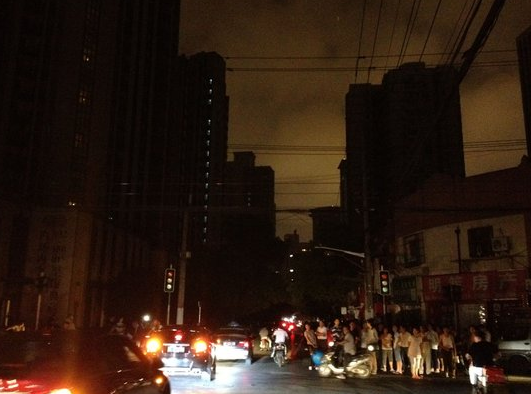Beijing: As China faced unprecedented power shortages leading to extensive electricity cuts in several provinces, dozens of American companies operating in the country said they have been badly affected by the power rationing.
The power cuts have led to lost business opportunities, cancellation of orders and wastage of raw materials, Ker Gibbs, president of the American Chamber of Commerce (AmCham) in Shanghai said.
The association’s over 3,000 members representing some 1,200 companies were in talks with local authorities on ways to mitigate the power outages as several provinces in China in the past weeks were gripped by a major power crisis.
“They were being told literally an hour or two ahead of time that they need to shut down,” Gibbs told the Hong Kong-based South China Morning Post Thursday after hosting a teleconference with around 40 members from as far as Tianjin in the north to Guangdong in the south.
“That type of abrupt shutdown can actually cause damage to equipment [and] even cause safety issues,” he said. The disruption to sophisticated supply chains – many linked to overseas operations – has already caused materials wastage, lost opportunities and cancelled orders, he added.
The power cuts mainly due to dozens of China’s coal power plants dropping their production has thrown the industries in disarray, affecting its manufacturing sector which made it the world’s second-largest economy, “the factory of the world”.
At least 20 of China’s 31 provincial-level jurisdictions are rationing electricity to play catch-up, after seven failed to meet both of Beijing’s energy consumption and intensity control targets in the first half, the Post report said.
The targets were handed down as China aims to cut energy intensity by three per cent this year and a cumulative 13.5 per cent through to 2025, as part of longer-term de-carbonisation goals.
The power cuts now reportedly spread to homes in several provinces and even affected street and traffic lights in cities according to official media reports.
The power shortages which are not much heard of in China in recent years have already made several global financial institutions cut their annual growth forecasts.
Goldman Sachs was the latest banking giant to cut its growth forecast for China.
It now expects the world’s second-largest economy to expand by 7.8 per cent this year, down from its previous prediction of 8.2 per cent. It says major industrial output cuts caused by power outages add “significant downside pressures”.
It estimates as much as 44 per cent of China’s industrial activity has been affected, the BBC reported.
A report in the State-run China Daily attributed the shortage of electricity in China to the increase in demand at a faster pace, rise in the price of coal and attempts by local governments to fulfil their emissions cut quotas.
By the end of September, the price of thermal coal had increased about two-fold compared with the same period last year, exhausting the interest margin of the power plant operators.
At the same time, the supply of hydropower and wind power decreases in winter, and cannot fill the gap left by the reduction in thermal power, the report said. Since Northeast China mainly relies on coal-fired electricity, the influence of the above-mentioned factors on the region is particularly obvious, it said.
And the storage of coal that will be used to stoke the public heating system of the region during the long and cold winter further aggravates the already tense supply-demand relations in the coal market, it said.
China’s top economic planner meanwhile said China has reassured the public saying that the country has the ability to fully ensure power supply for residential use.
The National Development and Reform Commission (NDRC) has announced several measures to tackle power shortages in many places around the country, including increasing coal and natural gas imports and production, emphasising market-based pricing mechanism for thermal power, and making plans to use energy in a sustainable and well-managed manner.
As power shortages continue to draw widespread attention in China, the NDRC said that it will ensure a stable energy supply for the upcoming winter and spring to guarantee residential use and heating, state-run Global Times reported.
PTI
